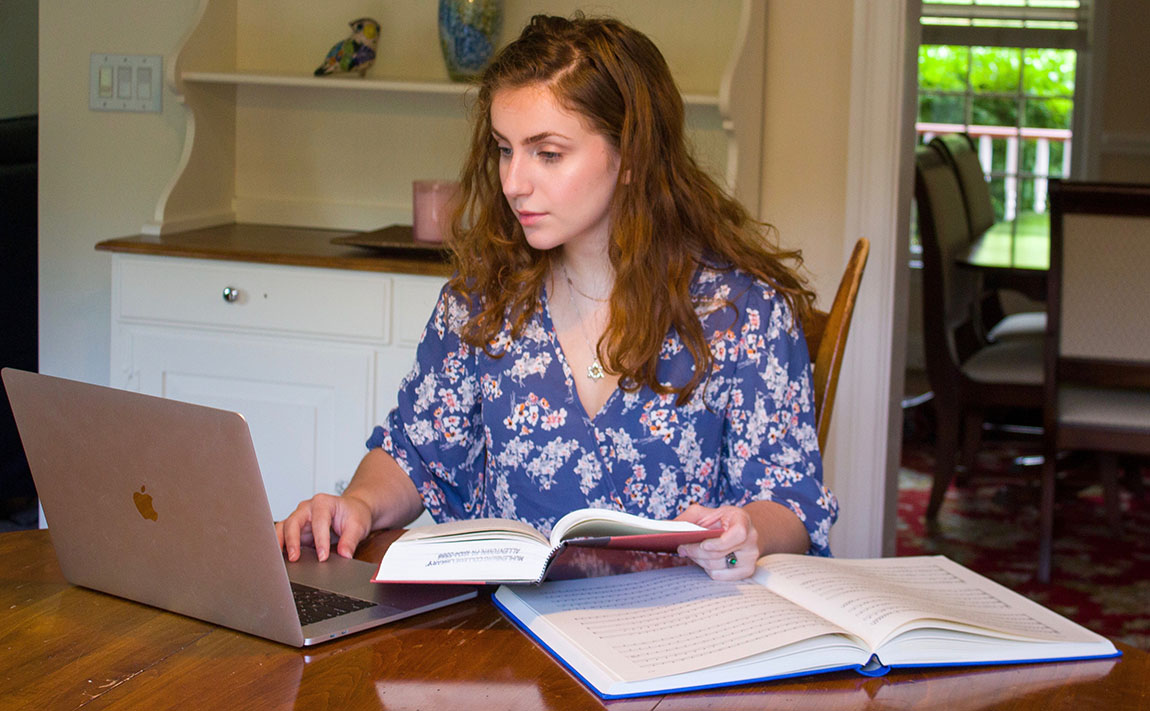The Intersection of Music and History
Independent research on how one composer’s operas served as propaganda for King Louis XIV is helping Tess Rhian ’21 prepare for graduate school.By: Meghan Kita Wednesday, July 29, 2020 08:49 AM
 Tess Rhian ’21
Tess Rhian ’21Tess Rhian ’21, a music major, knew she wanted to do summer research last fall, after a moment of inspiration in Assistant Professor of Music Kassandra Hartford’s Opera course. The class studied a number of operas, and readings about each provided further context behind the work. A reading about Jean-Baptiste Lully’s Armide explored King Louis XIV’s relationship to that opera.
“It talked about how he had a lot of influence on the arts during his reign, and it went on to talk about how the operas that the composer Lully created were created to function as propaganda for the king,” Rhian says. “Once I heard that, it was like a spark went off in my mind. I knew I wanted to dive deeper on these connections between French history and politics and the operas being produced at the time.”
Rhian is doing that this summer, with Hartford as her advisor. She’s using history books along with scores, libretti (the texts of various Lully operas) and CDs and DVDs of performances to dig into how Lully’s work functioned as propaganda for Louis XIV. She’s focusing primarily on Armide, which was based on a well-known poem written a century earlier about Christian crusaders taking down a Muslim ruler.
The historical context of that moment involved a religious war between other European nations, which were Christian, and the Ottoman Empire, which was Muslim. King Louis XIV tried not to outwardly take a side, which displeased other European leaders. When the Palace of Versailles was built, he commissioned artists to depict Ottomans in shackles: “King Louis XIV did this so when these other European leaders came to visit, they would see that he actually viewed the Ottomans as lesser than, so they could be on the same page,” Rhian says. Armide, which was created within the next year and a half, served a similar purpose.
Rhian is planning to use the research she produces this summer as she applies to graduate school for music history or musicology. “This is predominantly independent research, which is typically what the research style is like in grad school,” she says. “This is giving me the experience needed to be successful in my graduate and eventually doctoral studies.”
